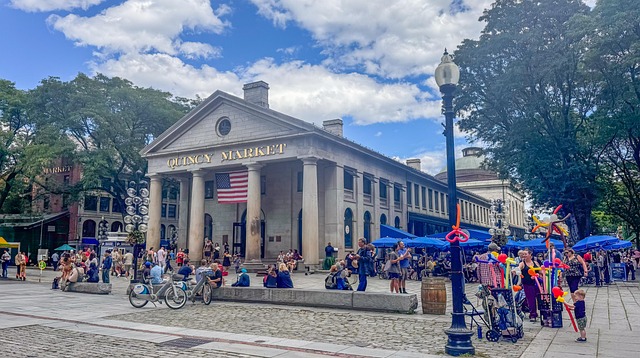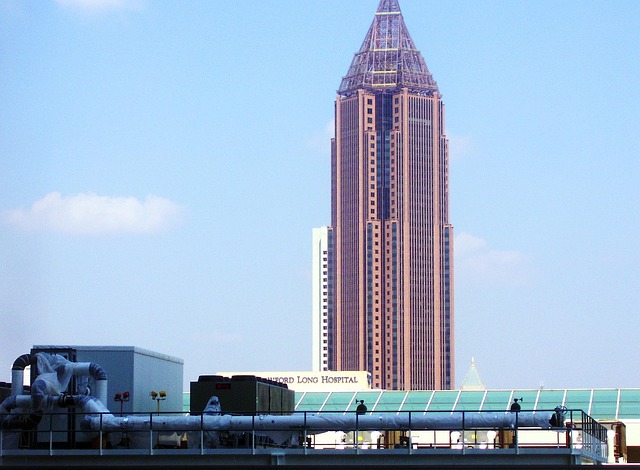Boston NY e-waste recycling thrives through collaborative efforts between New York City and Boston, streamlining collection and disposal. Adhering to strict regulations, cities optimize e-waste transport, minimize environmental impact, and boost local economies, positioning them as sustainability leaders with robust e-cycling initiatives.
“Uncovering the sustainable path between New York City and Boston, this article explores the intricate journey of e-waste transportation. We delve into the significance of efficient e-waste management in the Boston–NYC corridor, where a robust recycling network is essential for environmental preservation and economic growth. By examining regulatory frameworks and innovative logistics, we uncover strategies to optimize e-waste recycling, ensuring a greener future for both cities. Explore the impact of responsible e-waste transfer and discover how sustainable routes can revolutionize Boston and New York’s electronic waste landscape.”
- Understanding E-Waste Transportation Between NYC and Boston
- Regulatory Frameworks for Safe E-Waste Transfer
- Impact of Efficient Recycling on Local Economies
- Choosing Sustainable Routes for Optimal Logistics
Understanding E-Waste Transportation Between NYC and Boston

Understanding E-Waste Transportation Between NYC and Boston
The transportation of e-waste between New York City (NYC) and Boston involves a complex network of collection, processing, and recycling initiatives. Both cities are committed to responsible e-waste management, recognizing the environmental impact of electronic device disposal. In NYC, various programs like nyc e-waste collection for events offer convenient drop-off points for residents and businesses, ensuring proper handling of cyber waste. Similarly, Boston has implemented the boston cyber waste collection program to facilitate recycling efforts across the region.
These initiatives cater to diverse needs—from large-scale events generating significant electronic byproducts to startups looking for efficient e-recycling solutions in Boston. The collaboration between NYC and Boston aims to create a seamless flow of e-waste, promoting sustainable disposal practices and fostering an eco-friendly cyber waste collection culture along the East Coast.
Regulatory Frameworks for Safe E-Waste Transfer

The safe transportation of e-waste between New York City and Boston is a complex process that involves adherence to strict regulatory frameworks. Both states have established guidelines and laws aimed at ensuring responsible management and disposal of electronic waste, including its movement across state lines. These regulations cover various aspects, such as packaging, labeling, and documentation, to guarantee the environmental safety and health of both communities.
For instance, New York City has implemented robust e-waste collection programs, including specialized events for businesses and schools participating in nyc e-waste collection initiatives. Similarly, Boston offers IT asset disposition services that encourage responsible recycling through partnerships with certified facilities. As e-waste is transported between these cities, it must comply with state and federal standards, ensuring that materials are handled and recycled properly, particularly when focusing on boston computer recycling for schools or efficient boston IT asset disposition practices.
Impact of Efficient Recycling on Local Economies

The efficient transportation of e-waste from New York City to Boston plays a pivotal role in boosting local economies through responsible recycling practices. By implementing streamlined processes for managing electronic scraps, both cities can reduce environmental impact and stimulate green job creation. The economic benefits are twofold: it diverts valuable resources from landfills and creates new opportunities in the growing e-cycling industry. Boston, known for its forward-thinking initiatives, can further bolster its reputation as a sustainable hub by ensuring proper handling of hazardous waste through regular collection events. Similarly, NYC’s numerous e-cycling events and initiatives can be enhanced by optimizing transportation methods, making it easier to collect and process e-waste responsibly.
This collaboration on e-waste recycling not only fosters ecological preservation but also cultivates a robust local economy centered around sustainability. As Boston and New York continue to innovate in waste management, efficient recycling becomes a powerful tool for economic growth, ensuring that the region stays ahead in the global push towards a greener future.
Choosing Sustainable Routes for Optimal Logistics

When planning the transportation of e-waste from New York City to Boston for recycling, selecting sustainable routes plays a pivotal role in optimizing logistics and environmental impact. This involves strategic considerations such as minimizing carbon emissions, choosing energy-efficient transport methods, and adhering to regulatory guidelines for hazardous material handling. By strategically mapping out these routes, companies can ensure compliance with regulations like those governing nyc tech waste management and boston sustainable electronics disposal.
An eco-friendly approach may involve utilizing dedicated e-waste recycling vehicles equipped with state-of-the-art containment systems to prevent any potential leaks or spills. Additionally, prioritizing direct routes reduces the carbon footprint associated with unnecessary mileage, aligning with the goal of boston electronics recycling certificate programs that emphasize sustainable practices. Such careful planning not only benefits the environment but also enhances the overall efficiency and reliability of e-waste management between these two major urban centers.
The efficient transportation of e-waste between New York City and Boston is a sustainable practice that significantly benefits local economies while ensuring environmental safety. By navigating regulatory frameworks, optimizing logistics through sustainable routes, and prioritizing proper recycling methods, this process fosters a greener future for both cities. Effective e-waste management in Boston NY recycling initiatives empowers communities, promotes economic growth, and ensures that electronic byproducts are handled responsibly, leaving a positive, lasting impact on the environment.














